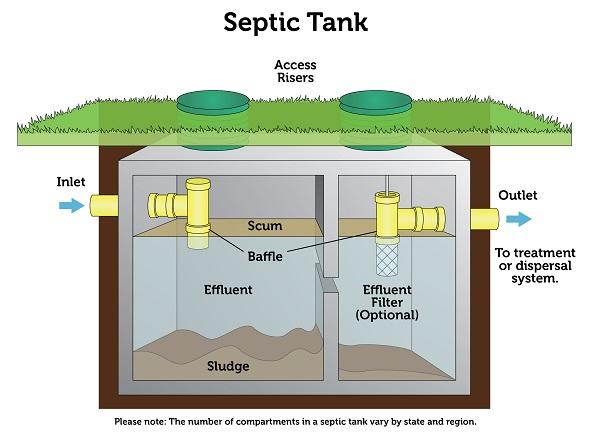
Eggshells or onion skins. Flush ½ cup of dry baking yeast down the toilet the first time.

Flush ½ cup of dry baking yeast down the toilet the first time.
Eggshells in septic tank. I agreeeggshells have no purpose being in a septic tank. They do not break down and will cause problems. Eggshells While they may seem harmless eggshells can get stuck in grease fats and oils to create a thick mess in your pipes Grease Fats Oils These items act as a binder for all sorts of materials and can coat your pipes until nothing can pass through them.
If you have a septic tank avoid using the garbage disposal especially for anything like egg shells bones coffee grounds and other things that the bacteria in the tank wont eat. Worst case scenario is that they can plug up your leach field for a very expensive repair. Follow answered Mar 5 11 at 253.
568 2 2 gold badges 5 5 silver badges 13. Some bio-degradable and semi-biodegradable items should also be thrown out with the trash. Egg shells coffee grounds cat litter clothes dryer lint and vacuum debris.
Eggshells or onion skins. Fats oils or greases. Pasta or rice they expand in water and can clog your pipes stringy vegetables especially celery corn husks and artichokes non-food items like plastic paper towels or twist ties Even if these items pass through your garbage disposal they will not decompose inside your septic tank.
Instead they will accumulate until a pumper removes them. While these wont be flushed coffee grounds often find their way into a garbage disposal and then in turn into the septic tank. Their texture makes it very difficult for the bacteria to break them down which can put your septic system in danger over time as they build up.
One great comparison is to think of these grounds as gravel even though they are much smaller. Yeast helps actively breaks down waste solids when added to your septic system. Flush ½ cup of dry baking yeast down the toilet the first time.
Add ¼ cup of instant yeast every 4 months after the initial addition. What Is A Septic Tank. Your septic tank is a large plastic or concrete container in the ground that holds about 1500 to 2000 gallons of water.
One end of your tank is connected to the wastewater pipe coming from your home and the other goes to your drain field. There are two chambers in the septic tank. As the waste flows through one chamber solids settle in the bottom and scum rises to the top.
Not only are the shells hard on disposal blades the egg shell membranes can wrap around the grinding device. Once ground the tiny bits of the shell can compound other blockages. The eggshells will stick and collect and can jam a garbage disposal as well as build up on pipes and cause clogs.
Sewer Clogs Could Be a Major Expense. When you process food in your garbage disposal it exits your house via a pipe that is either attached to a private septic tank or to a municipal sewage system. In the instance of eggshells they can stick to your pipes collect and cause a clog which can become exorbitantly costly.
If you are lucky enough just to clog your garbage. Food refuse such as coffee grounds and eggshells. Non-flushable paper such as paper towels.
Chemicals such as gasoline oil pesticides antifreeze paint or paint thinners. Dont drown your system with excess water. Remember Item 5 in how your septic system works.
Water needs time to drain out of the tank and into the. As you have read putting eggshells in a garbage disposal is not something you should do. It could damage the grinder clog your pipes and wreak havoc in the sewers or your septic tank.
Therefore finding other ways to dispose of the eggshells is essential. You can either throw them away into your trash can or compost them. Either way as long as they do not go into your disposal you will be more.
All food bones including chicken pork and beef are bad for a septic tank. First of all your garbage disposal isnt designed to chop up these items. If it eventually does the fragments cant be broken down by the bacteria in your septic tank.
Because of that theyll sink to the bottom and create sludge. However thats assuming that the bones dont get caught in your pipes first. Most substances that are poured down the drain do not decompose and remain in the septic tank.
Dont pour grease fats and oils down the drain or place coffee grounds and eggshells in the disposal or down the drain. Keep chemicals out of your system. When a septic tank is complete you will see water pooling around the surface of the septic tank area or drain field.
A significant crack hence the leakage may cause it or it could be full. Either way you will need to have it pumped out and inspected immediately. Furthermore clogging results when the septic tank is nearly full.
The drains become weaker and slower in pushing the contents into the septic tanks. How a Septic Tank Functions The typical septic tank is a large buried rectangular or cylindrical container made of concrete fiberglass or polyethylene usually located 10 or more feet from the point where the sanitary drain leaves the house. Wastewater from your bathroom kitchen and laundry flows into the septic tank.
There heavy solids settle to the.